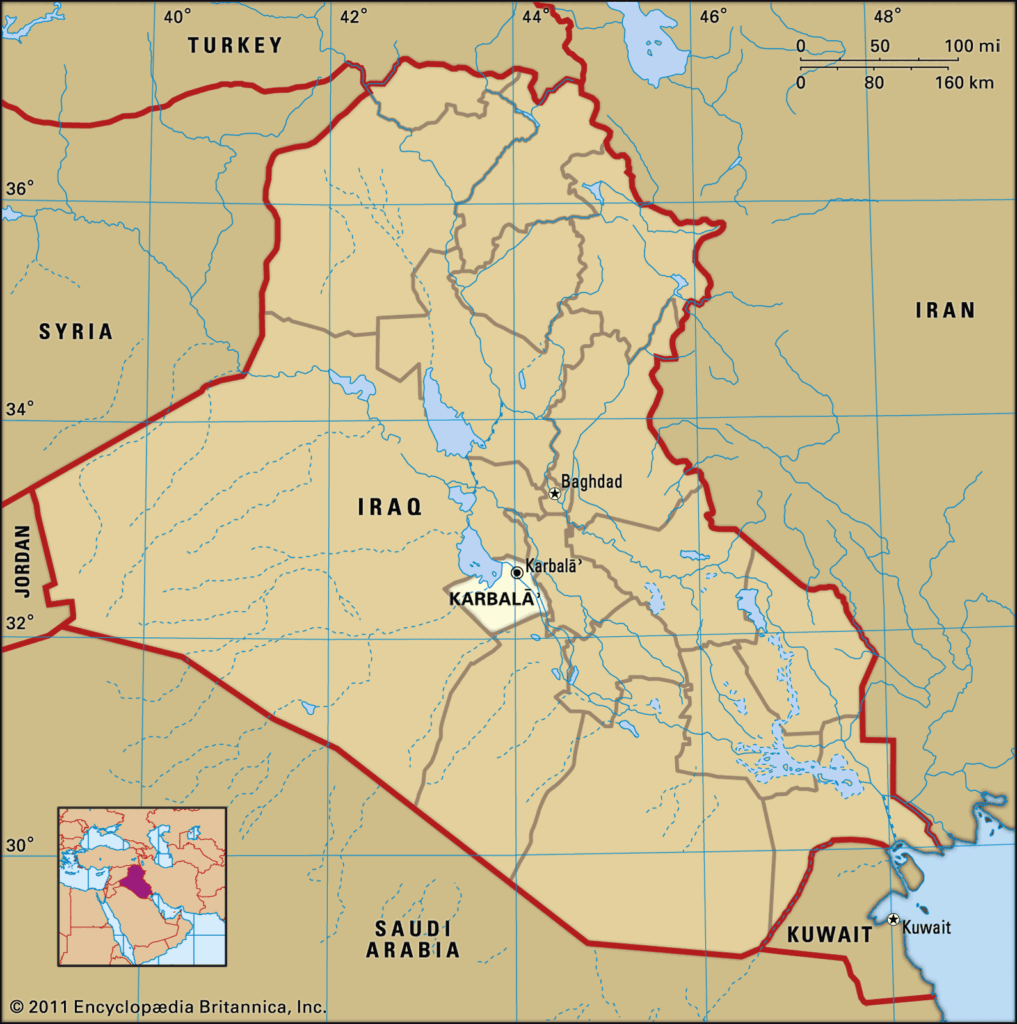Table of Contents
Outline:
- Introduction
- What does “Labaik Ya Hussain” mean?
- Historical context and origin
- The Significance of Imam Hussain
- Who was Imam Hussain?
- His role in Islamic history
- The Battle of Karbala
- Overview of the battle
- Key events and figures
- The Message of Karbala
- Principles of justice and sacrifice
- How these principles resonate today
- Commemorating Ashura
- What is Ashura?
- How it is observed worldwide
- Muharram Processions
- Significance of the processions
- Global participation and variations
- Cultural Expressions
- Poetry and literature
- Art and music inspired by Karbala
- Modern-Day Relevance
- Lessons from Karbala in contemporary times
- Social and political movements inspired by Imam Hussain
- Labaik Ya Hussain in Different Cultures
- How different cultures embrace this call
- Examples from various countries
- Community and Solidarity
- Building community through remembrance
- Acts of charity and solidarity
- Impact on Personal Faith
- How remembering Karbala strengthens personal faith
- Personal stories and testimonials
- Educational Initiatives
- Programs and institutions promoting the teachings of Imam Hussain
- Role of religious education
- Challenges and Misconceptions
- Addressing common misconceptions
- Overcoming challenges in spreading the message
- Future of Commemorations
- Trends in how Labaik Ya Hussain is celebrated
- Potential future developments
- Conclusion
- Recap of key points
- The enduring legacy of Imam Hussain
- FAQs
- What does “Labaik Ya Hussain” mean?
- Why is the Battle of Karbala significant?
- How is Ashura observed?
- What lessons can be learned from Imam Hussain’s sacrifice?
- How can I participate in Muharram commemorations?
Labaik Ya Hussain: Understanding the Spiritual Significance and Cultural Impact
Introduction
Have you ever wondered what “Labaik Ya Hussain” means? It’s more than just a phrase; it’s a powerful call that echoes through centuries, signifying loyalty, love, and a profound commitment to justice. Originating from the heart-wrenching events of the Battle of Karbala, this declaration has become a rallying cry for millions of people around the world, uniting them in remembrance and reverence.
The Significance of Imam Hussain
Imam Hussain, the grandson of the Prophet Muhammad, holds a revered place in Islamic history. Known for his unwavering commitment to justice and his ultimate sacrifice, Imam Hussain’s legacy continues to inspire and guide. His life and actions symbolize the fight against oppression and the pursuit of truth, making him a central figure not just in religious contexts but also in moral and ethical discussions.
The Battle of Karbala
The Battle of Karbala, fought in 680 AD, was a pivotal moment in Islamic history. It wasn’t just a clash of swords but a struggle of ideologies. Imam Hussain and his small band of followers stood against the vastly superior forces of Yazid, the Umayyad caliph, in a courageous stand for justice and righteousness. This battle, though tragic, highlighted the profound principles that Imam Hussain stood for.
The Message of Karbala
At its core, the message of Karbala is one of justice, sacrifice, and unwavering faith. Imam Hussain’s stand against tyranny and his refusal to bow to injustice resonate deeply even today. These principles transcend time and geography, offering a powerful reminder of the importance of standing up for what is right, regardless of the odds.
Commemorating Ashura
Ashura, the tenth day of Muharram, is a day of profound significance for Muslims around the world. It marks the anniversary of the Battle of Karbala and serves as a day of mourning and reflection. Observances vary, but they often include processions, recitations, and acts of charity, all aimed at commemorating the sacrifices of Imam Hussain and his followers.
Muharram Processions
Muharram processions are a vivid expression of grief and solidarity. These processions, held in cities around the world, are a way for communities to come together and publicly mourn the martyrdom of Imam Hussain. They vary in form and scale but share a common purpose: to honor the memory of Karbala and to reaffirm the values it represents.
Cultural Expressions
The events of Karbala have inspired a rich tapestry of cultural expressions. Poetry, literature, art, and music have all been profoundly influenced by the story of Imam Hussain. From poignant elegies to vibrant paintings, these cultural works help keep the memory of Karbala alive, allowing each generation to connect with its powerful message.
Modern-Day Relevance
Imam Hussain’s stand at Karbala continues to inspire contemporary social and political movements. His principles of justice and resistance against oppression resonate with those fighting for human rights and dignity today. The lessons from Karbala provide a timeless blueprint for ethical conduct and courageous leadership.
Labaik Ya Hussain in Different Cultures
“Labaik Ya Hussain” transcends cultural boundaries, finding resonance in diverse communities. Whether in the Middle East, South Asia, Africa, or the Western world, this call unites people in their shared values and common heritage. Each culture embraces and expresses this call in unique ways, reflecting their own histories and traditions.
Community and Solidarity
The remembrance of Imam Hussain fosters a sense of community and solidarity. Acts of charity, community gatherings, and shared rituals all contribute to building strong, supportive networks. These activities not only honor the past but also strengthen the bonds of community in the present.
Impact on Personal Faith
For many, remembering Karbala is a deeply personal experience that strengthens their faith. Personal stories and testimonials highlight how the legacy of Imam Hussain inspires individuals to live more ethically and compassionately. This connection to Karbala often becomes a cornerstone of personal spirituality.
Educational Initiatives
Numerous programs and institutions are dedicated to promoting the teachings of Imam Hussain. Religious education plays a crucial role in passing down the lessons of Karbala to future generations. These initiatives ensure that the principles of justice, sacrifice, and faith remain relevant and impactful.
Challenges and Misconceptions
Despite its profound significance, there are challenges and misconceptions surrounding the commemoration of Karbala. Addressing these misconceptions and overcoming challenges is essential for ensuring that the true message of Imam Hussain’s sacrifice is understood and appreciated.
Future of Commemorations
The ways in which Labaik Ya Hussain is celebrated are continually evolving. As communities grow and change, so do the traditions and practices associated with these commemorations. Looking to the future, it’s clear that the legacy of Karbala will continue to inspire and guide, adapting to the needs and contexts of each new generation.

Conclusion
In conclusion, “Labaik Ya Hussain” is much more than a phrase; it’s a declaration of unwavering faith and a commitment to justice. The legacy of Imam Hussain, highlighted by the events of Karbala, continues to inspire millions around the world. As we remember and honor his sacrifice, we are reminded of the timeless values of courage, justice, and compassion.
FAQs
What does “Labaik Ya Hussain” mean? “Labaik Ya Hussain” translates to “Here I am, O Hussain.” It signifies readiness and commitment to follow the principles and stand for justice, as exemplified by Imam Hussain.
Why is the Battle of Karbala significant? The Battle of Karbala is significant because it epitomizes the struggle for justice and truth against tyranny. Imam Hussain’s sacrifice serves as a powerful example of unwavering faith and moral courage.
How is Ashura observed? Ashura is observed through various rituals, including fasting, processions, recitations of elegies, and acts of charity. These observances aim to commemorate the martyrdom of Imam Hussain and his followers.
What lessons can be learned from Imam Hussain’s sacrifice? Imam Hussain’s sacrifice teaches us the importance of standing up for justice, even in the face of overwhelming odds. His example encourages us to be courageous, compassionate, and unwavering in our commitment to truth.
How can I participate in Muharram commemorations? You can participate in Muharram commemorations by attending processions, engaging in community events, learning about the history of Karbala, and performing acts of charity. These activities help honor the memory of Imam Hussain and his message.





